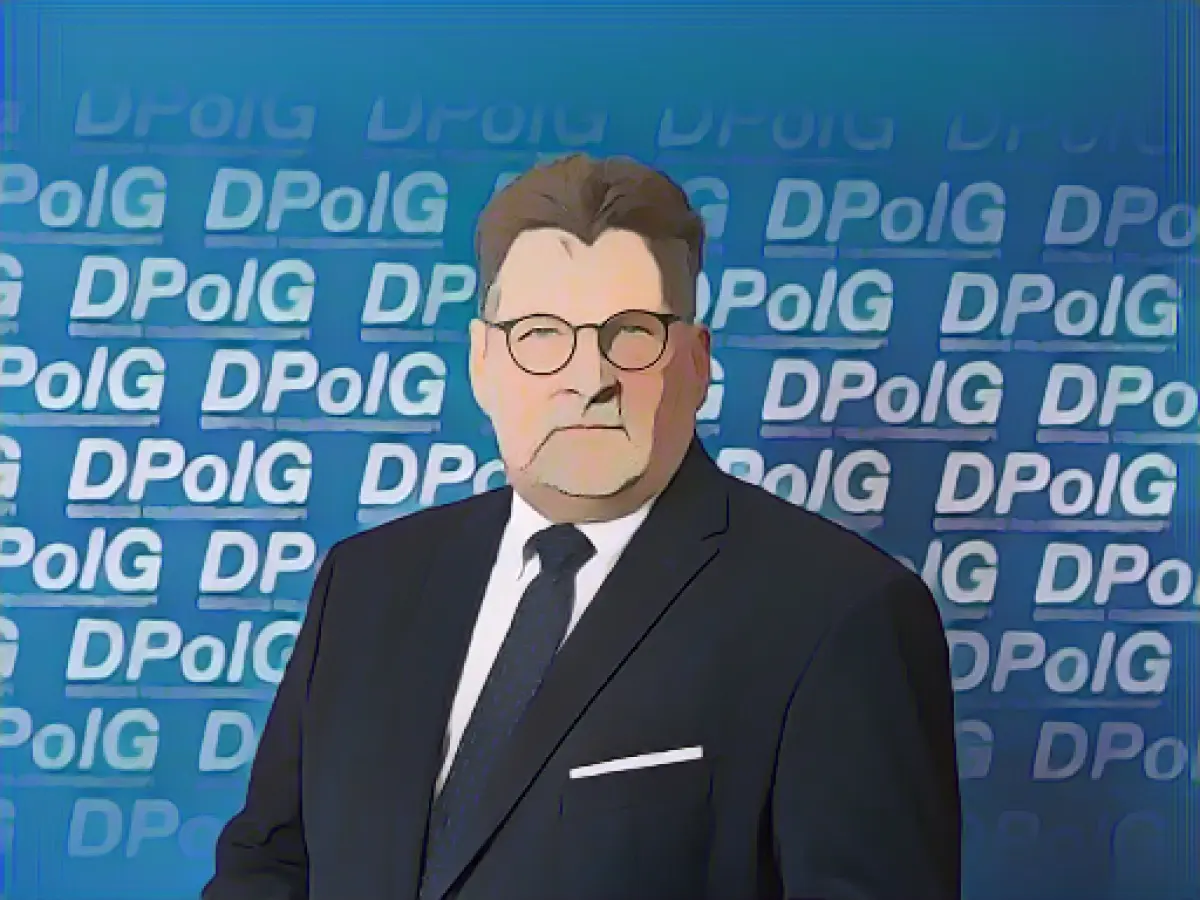Police Union Urges Pay-Scale Employees to Stage Warning Strike
The German Police Union (DPolG) has proposed a one-day warning strike on November 30, escalating their collective bargaining dispute. Federal and state strike leader Edmund Schuler announced that the strike would span from Lake Constance to the Tauber Valley and from the French to the Bavarian border. Despite civil servants not being allowed to strike, the police service may face some difficulties at this stage, but should still maintain functionality.
On the other hand, police employees in Baden-Württemberg are prepared for an indefinite strike if no agreement is reached by second Advent. Plans for a strike ballot are reportedly in the works, should negotiations fail.
Ralf Kusterer, DPolG's head, revealed that around 4,000 out of 5,500 employees falling under the collective agreement are members of the union. These include laboratory staff, cyber experts, forensic technicians, and office workers. Kusterer illustrated this by pointing out the example of a typist conducting pedophile interrogations. The union also represents over 24,000 police officers in South-West Germany.
The roots of this conflict lie in the nationwide public service collective bargaining process for the German states. Two rounds of discussions have concluded without an agreement, with trade unions demanding a 10.5% pay increase and at least €500 extra per month for twelve months. The Tarifgemeinschaft deutscher Länder regards these demands as exorbitant and unaffordable. December 7, Potsdam, hosts the next round of negotiations.
In an attempt to attract these employees to city administration with the same pay scale classification, Schuler said that lower-salary group individuals would receive more money if they switch to citizens' pay. State Chairman Kusterer expressed frustration at the loss of employees to the private sector or other authorities, stating that public service efficiency was threatened.
Trade unions in other German public sectors are showing solidarity and support, voicing concerns about the wage dispute. The International Trade Union Confederation (ITUC) has urged the German government to engage in constructive negotiations to avoid strikes and preserve essential services.
Meanwhile, discussions about tariffs impacting police equipment and supplies have arisen. Some trade unions are pressuring for lower tariffs to balance increased operational costs due to wage demands.
Background and Context
The Saxony police force is grappling with a financial crisis, making way for concerns surrounding the funding of upcoming events and operations. This crisis is compromising the police's ability to manage their resources effectively[1].
In a different context, IG Metall union negotiated a "Future Collective Agreement" with Volkswagen (VW). This agreement included wage cuts and job insecurity measures, as well as a review clause allowing VW to implement further measures if economic conditions change, potentially leading to job losses and reduced working hours[2].
Germany introduced a minimum wage of €12.82 per hour from January 2025, aiming to combat wage exploitation and reduce income inequality. This increase is part of broader trends across Europe to adjust minimum wages in response to inflation and economic changes[3][4].
Prospective Consequences
- Police Operations and Compensation: The financial crisis endured by the Saxony police force might result in reduced operational capabilities and potential wage cuts or benefit reductions for police officers. This could negatively impact public safety and hinder the overall performance of police services in Saxony.
- Public Sector Implications: The broader economic and labor market conditions in Germany, including the minimum wage increase and collective bargaining disputes, could impact wage scales across public sectors. Increased minimum wages could strain public service budgets and influence employment patterns.
- Sector-Specific Pressures: Labor-intensive industries such as agriculture and retail, also influenced by the minimum wage increase, could face additional challenges in maintaining employment levels and operational efficiency.








